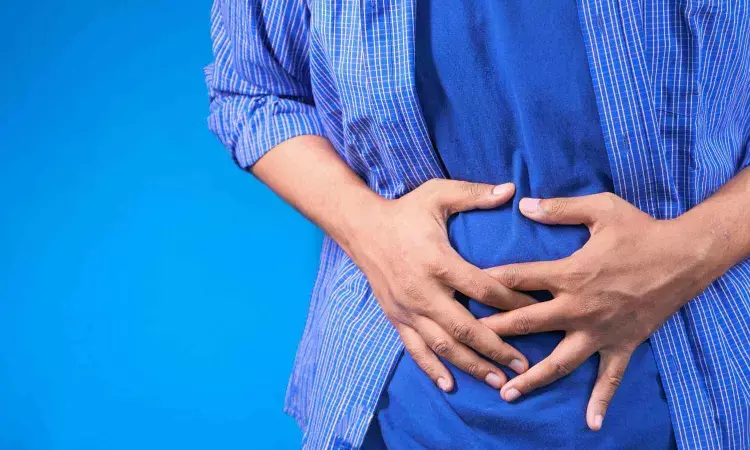- Home
- Medical news & Guidelines
- Anesthesiology
- Cardiology and CTVS
- Critical Care
- Dentistry
- Dermatology
- Diabetes and Endocrinology
- ENT
- Gastroenterology
- Medicine
- Nephrology
- Neurology
- Obstretics-Gynaecology
- Oncology
- Ophthalmology
- Orthopaedics
- Pediatrics-Neonatology
- Psychiatry
- Pulmonology
- Radiology
- Surgery
- Urology
- Laboratory Medicine
- Diet
- Nursing
- Paramedical
- Physiotherapy
- Health news
- Fact Check
- Bone Health Fact Check
- Brain Health Fact Check
- Cancer Related Fact Check
- Child Care Fact Check
- Dental and oral health fact check
- Diabetes and metabolic health fact check
- Diet and Nutrition Fact Check
- Eye and ENT Care Fact Check
- Fitness fact check
- Gut health fact check
- Heart health fact check
- Kidney health fact check
- Medical education fact check
- Men's health fact check
- Respiratory fact check
- Skin and hair care fact check
- Vaccine and Immunization fact check
- Women's health fact check
- AYUSH
- State News
- Andaman and Nicobar Islands
- Andhra Pradesh
- Arunachal Pradesh
- Assam
- Bihar
- Chandigarh
- Chattisgarh
- Dadra and Nagar Haveli
- Daman and Diu
- Delhi
- Goa
- Gujarat
- Haryana
- Himachal Pradesh
- Jammu & Kashmir
- Jharkhand
- Karnataka
- Kerala
- Ladakh
- Lakshadweep
- Madhya Pradesh
- Maharashtra
- Manipur
- Meghalaya
- Mizoram
- Nagaland
- Odisha
- Puducherry
- Punjab
- Rajasthan
- Sikkim
- Tamil Nadu
- Telangana
- Tripura
- Uttar Pradesh
- Uttrakhand
- West Bengal
- Medical Education
- Industry
COVID-19 survivors are more prone for digestive diseases, says study

COVID-19 has caused several complications ever since its onset. Complications like heart diseases, respiratory disorders, and several other neurological disorders are being studied however gastric diseases are less investigated.
Adult COVID-19 survivors are at higher risk for digestive diseases, including gastrointestinal (GI) dysfunction, peptic ulcers, gastroesophageal reflux disease (GERD), gallbladder disease, nonalcoholic liver disease, and pancreatic disease-even among patients with mild infections, according to a study published yesterday in BMC Medicine.
Southern Medical University researchers in China mined the UK Biobank database to compare rates of digestive diseases among COVID-19 survivors 30 or more days after infection (112,311), a contemporary comparison group (359,671), and a pre-COVID group (370,979) in the United Kingdom. Median follow-up was 8.4 months.
Participants were adults aged 37 to 73, and COVID-19 survivors were infected from January 2020 to October 2022. The contemporary group was made up of people who lived at the same time as recruitment of the COVID-19 group, and the historical group was made up of uninfected participants with data from January 2017 to October 2019.
Relative to the contemporary group, elevated risk in COVID-19 survivors was 38% for GI dysfunction (hazard ratio [HR], 1.38), 23% for peptic ulcers, 41% for GERD, 21% for gallbladder disease, 35% for severe liver disease, 27% for nonalcoholic liver disease, and 36% for pancreatic disease.
The risk of GERD rose stepwise with COVID-19 severity, and the risk of GERD and GI dysfunction persisted 1 year after diagnosis (HRs, 1.64 and 1.35, respectively). Reinfected participants had a higher likelihood of having pancreatic disease (HR, 2.57).
This underscores the significance of ensuring that healthcare systems are equipped to provide appropriate care to this population of mild cases, as well as varying degrees of COVID-19 severity.
The study authors said that the reasons for the increased risks may be fecal-oral viral transmission, interactions between the SARS-CoV-2 spike protein and the expression of angiotensin-converting enzyme 2 (ACE2) receptors in the digestive tract, or virus-associated inflammation.
"This underscores the significance of ensuring that healthcare systems are equipped to provide appropriate care to this population of mild cases, as well as varying degrees of COVID-19 severity," they wrote.
Reference:
Ma, Y., Zhang, L., Wei, R. et al. Risks of digestive diseases in long COVID: evidence from a population-based cohort study. BMC Med 22, 14 (2024). https://doi.org/10.1186/s12916-023-03236-4.
MSc. Neuroscience
Niveditha Subramani a MSc. Neuroscience (Faculty of Medicine) graduate from University of Madras, Chennai. Ambitious in Neuro research having worked in motor diseases and neuron apoptosis is interested in more of new upcoming research and their advancement in field of medicine. She has an engrossed skill towards writing and her roles at Medical dialogue include Sr. Content writer. Her news covers new discoveries and updates in field of medicine. She can be reached at editorial@medicaldialogues.in


